Round Table Conference on Macroeconomics, Business Environment and Finance
Macroeconomics, Business Environment and Finance was the topic of the online Round Table Conference organized by the Institute of Economics and Policy and dedicated to the 100th Anniversary of UNWE. In the Forum held on 14 May of the current year took part prominent representatives of academia and practice.
"UNWE confirms itself as a leading university in the digitalization of educational process but the scientific development should not be neglected either. So the Round Table Conference is a good example in this regard. The role of UNWE Institutes is to be a natural environment for such discussions", said the Rector Prof. Dimitar Dimitrov at the opening of the Round Table Conference and greeted the participants.
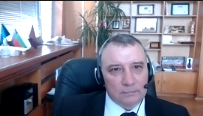 |
The Rector pointed out that the UNWE expertise for understanding of economic processes in the country had been assessed by the Minister of Economy Mr. Emil Karanikolov so an Expert Consultative Council to assist him had been established jointly with UNWE. Among the members of the Council is the Scientific Secretary of the Institute of Economics and Politics Assoc. Prof. Petar Chobanov. Such initiatives allow us to declare with confidence that the UNWE implements one of its main objectives - to be a guardian and creator of knowledge, to help the society and not to concentrate only on teaching, said Prof. Dimitrov.
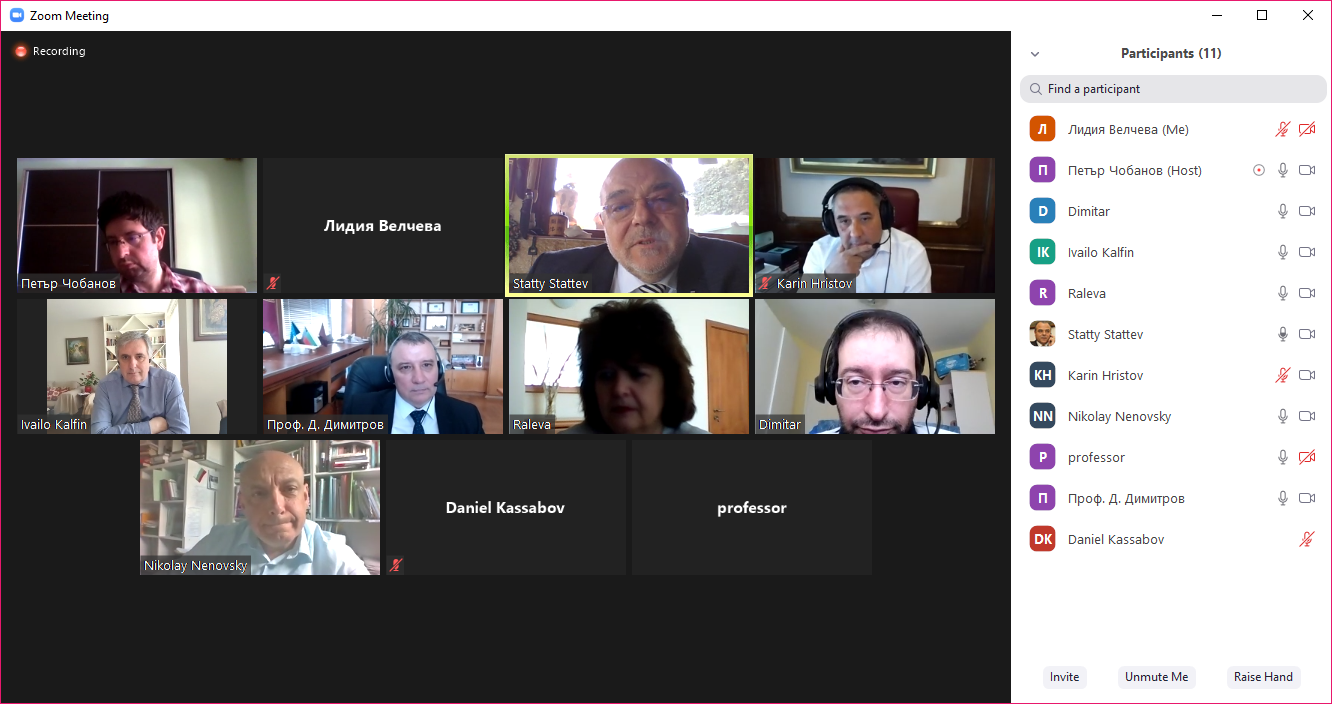 |
Mr. Kalin Hristov, Deputy Governor of BNB and graduate of UNWE, greeted the participants on the occasion of the UNWE Anniversary and the idea to organize such a discussion. Valuable discussions during a crisis are very important for understanding its essence as well as for the options to react to it. The issue of pandemics and their impact on the economy has not been well studied due to the lack of sufficiently similar episodes as well as for the differences in baseline conditions and the economic situation, noted Mr. Hristov.
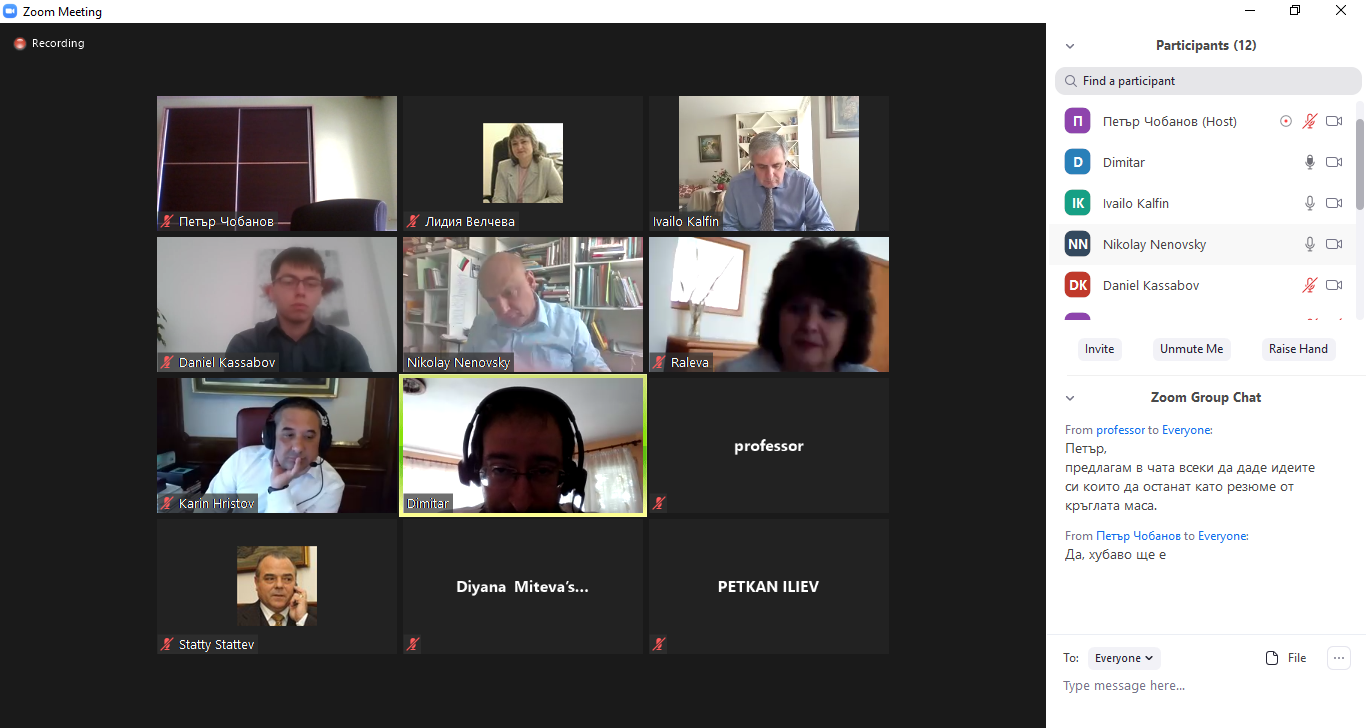 |
According to the BNB Deputy Governor at the moment our country has a unique chance to enter this crisis with some of the best baseline conditions. The currency board arrangement uses low interests rates at global level and they had a stimulating effect on the economy, such as the Central Bank's ban on government securities purchases which has a disciplinary effect on the fiscal system and limit the moral hazard. Our fiscal policy was prudent and managed to reduce and limit the growth of government debt.
Mr. Ivaylo Kalfin, former Deputy Prime Minister, Minister of Foreign Affairs and graduate of the UNWE who advises key committees in the European Parliament, expressed his hope that the crisis would be relatively short and the countries would recover quickly. He predicted an increase in the indebtedness of the countries as the deepening of the crisis might raise serious questions to the sources of financing. According to him, the crisis will inevitably lead to an increase of disparities in the Eurozone countries. The support provided in the context of the European Solidarity will include investment in the Green Deal, and we must be prepared for that. The main recommendation is to develop a plan for economic measures, to ensure the coherence and funding and not to improvise.
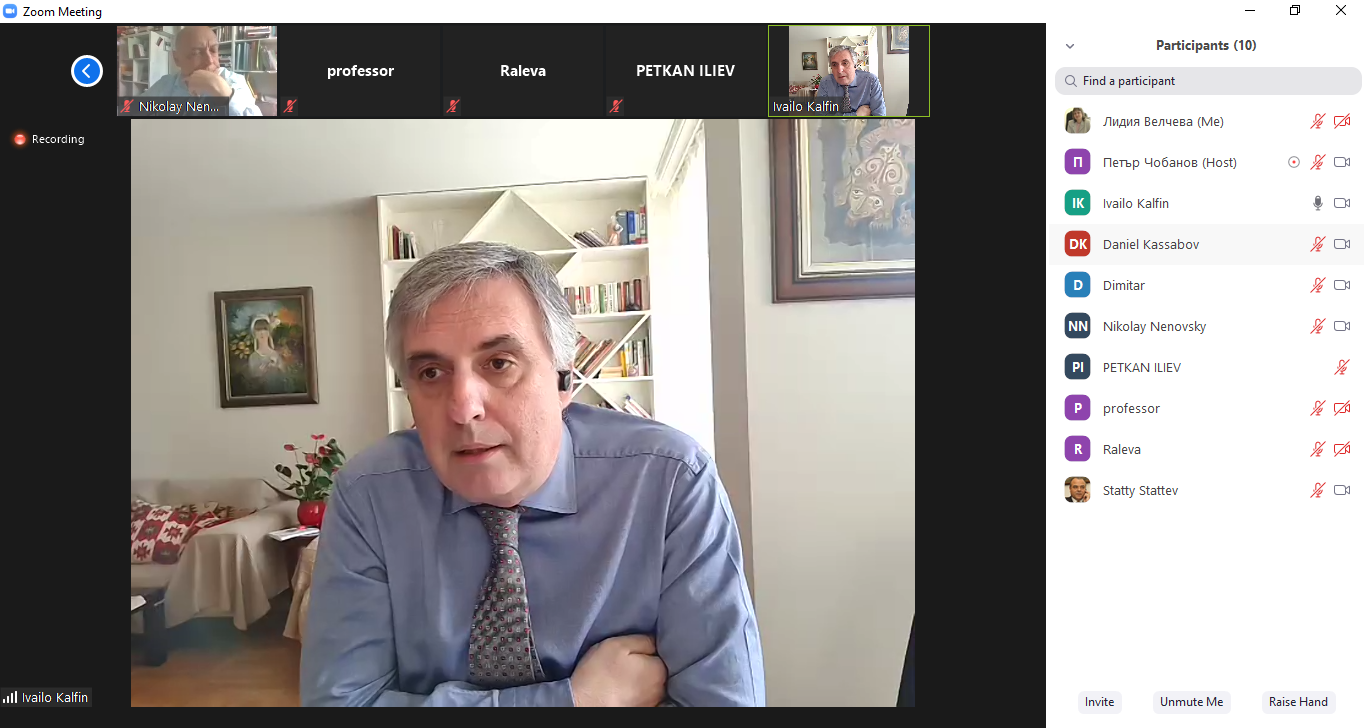 |
Prof. Daniela Bobeva, former Deputy Prime Minister and Minister, graduate of UNWE, believes that in order to prepare a plan for overcoming the crisis and economic recovery it is necessary to know how the economy responds to the shock caused by Covid-19. We do not know what is happening to the economy. The effects on various sectors are different and we usually study at macro level which in this case can be misleading. The uniqueness of the crisis requires also to reconsider the ways we measure its effect, said Prof. Bobeva. The best measure for post-crisis recovery is to reduce the administrative burden on businesses and citizens. The electronicization of public services must continue.
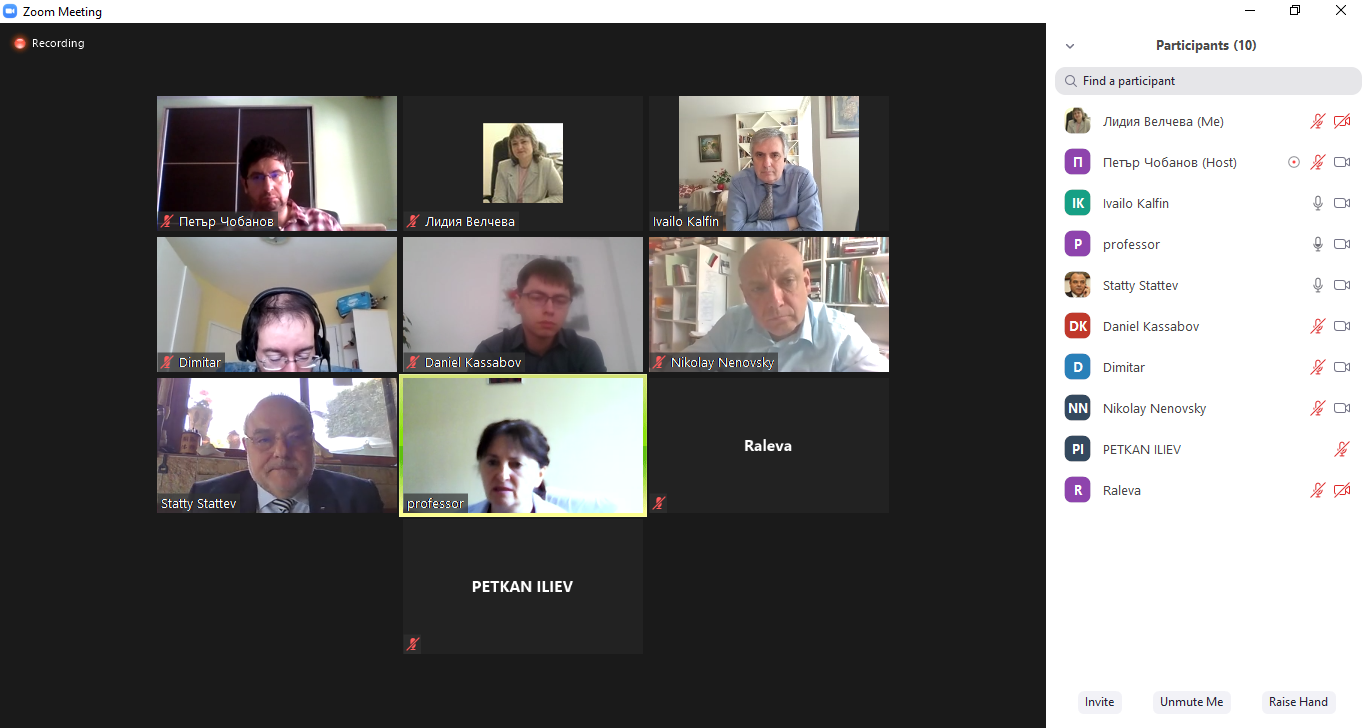 |
Prof. Nikolay Nenovsky, prominent monetary policy researcher, member of the BNB Governing Council and Director of the UNWE Monetary Research Center, pointed out the features of the current monetary policy - monetary nationalism, floating exchange rates and devaluation, money printing, QE, etc., combined with capital control. It entails all forms of economic nationalism - protectionism, patriotism and so on. The role of the IMF, the World Bank and even the UN needs to be reconsidered. All these institutions have already exhausted themselves in political, economic and financial regard, they have neither money nor the previous power and reputation. Prof. Nenovski also discussed the issues of transition to a new type of post-pandemic economy, its characteristics and ways for financing.
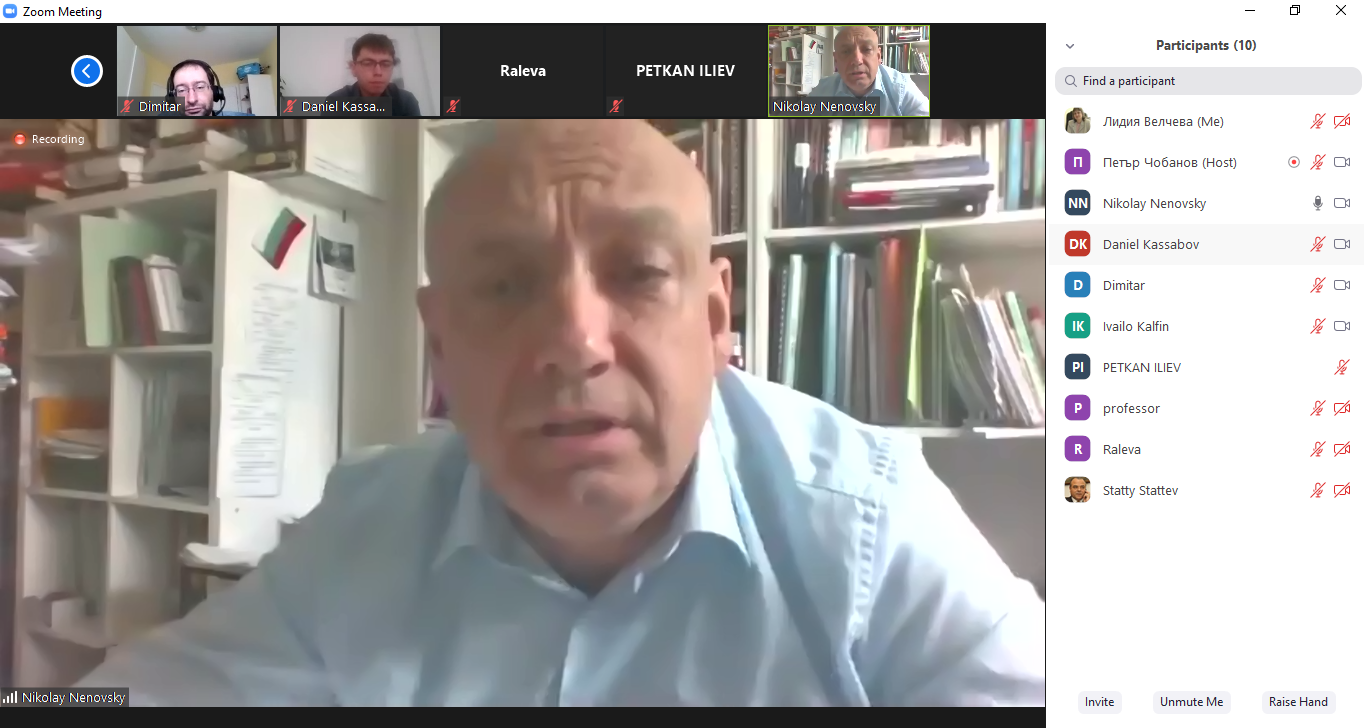 |
Prof. Statty Stattev, former member of the BNB Governing Council and Rector of UNWE /2011 – 2019/, Director of the Institute of Economics and Politics, emphasized on the fact that the world is facing the necessity to build a new economic order and new monetary and financial system, a new system for international specialization and cooperation, new organization of supply chains at all levels of production and sales. The recent financial crises in the world have shown that the chaotic competitiveness between currencies could not be controlled without world money. There is no single currency that could play this role and so is the electronic money. It means that the world should once again accept the gold as a common equivalent on the ground of world money treaty. It is too early to estimate losses but we can and should try to predict the future. We can mark the significant increase in online commerce and banking. Practice has shown that in many cases the online work is more effective than the previous models, said Prof. Statev.
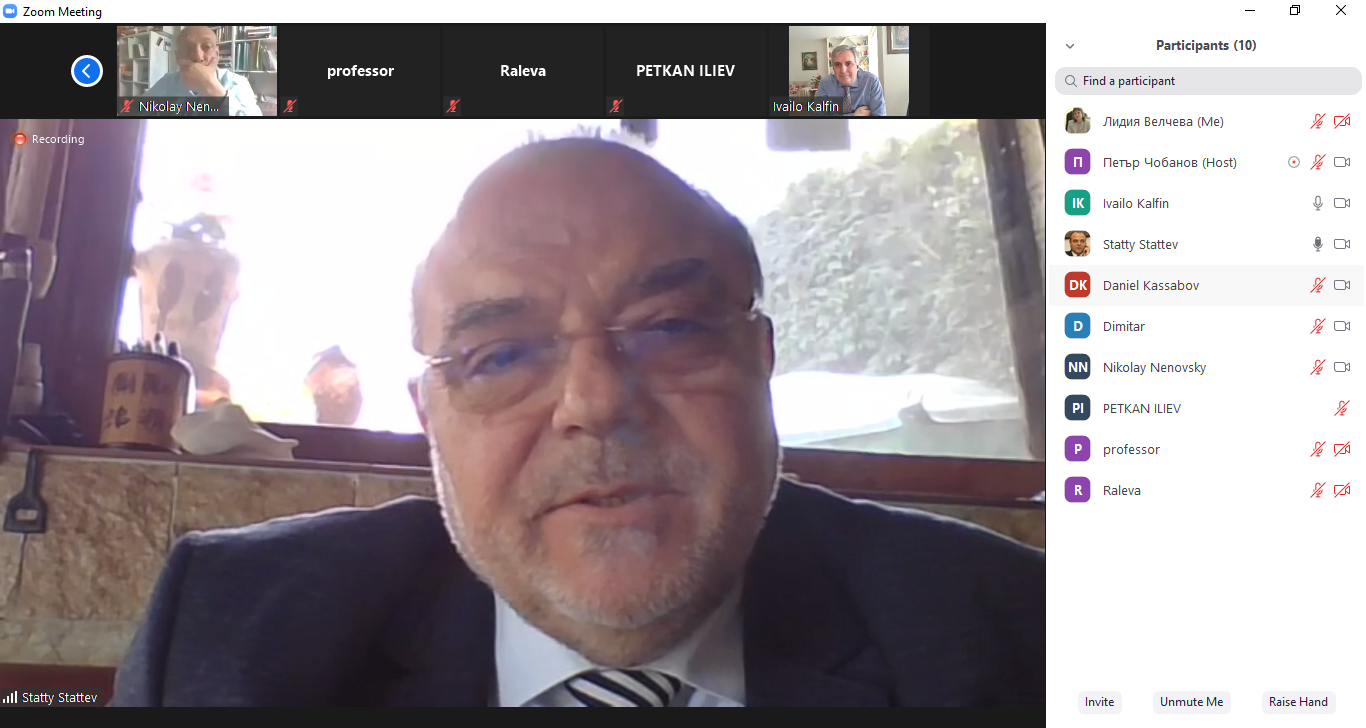 |
Assoc. Prof. Petar Chobanov, lecturer at the Finance Department, former Minister of Finance, Scientific Secretary of the Institute of Economics and Politics, paid attention to a number of problems facing economic development. The euro area is a very noble idea for reaching a single market, to unite the different market segments and to create higher efficiency. Before the Global Crisis til 2008, we really thought about the Eurozone as a good project worth to involve when we get ready. Until then there was a clearer idea of European Central Bank strategy and policy, its objectives, its attention on mainly monetary factors and trials to influence them. The criterion of inflation still had a meaning.
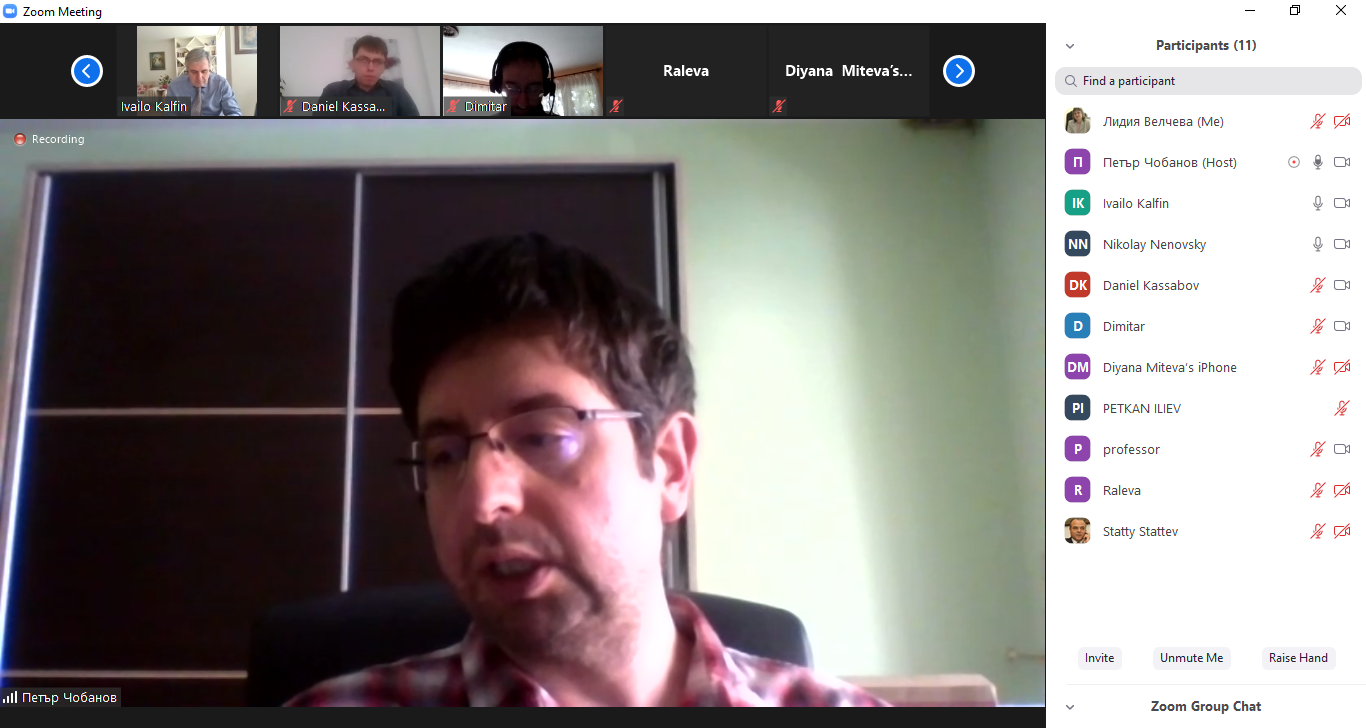 |
According to Assoc. Prof. Stella Raleva, Deputy Head of the Economics Department, the analysis of economic growth in Bulgaria should be supplemented by a study of the GDP structural characteristics and its dynamics. They could be examined from two points of view. The first one is related to the potential for economic growth in long-term perspective. The second one refers to the structural convergence of Bulgarian economy to the Eurozone. Based on the GDP structural characteristics and its dynamics in Bulgaria, it could be made the conclusion to increase the structural convergence of the Bulgarian economy to the Eurozone. However, it could limit the opportunities for long-term economic growth which means that the structural convergence in our country is actually in conflict with the real convergence, said Assoc. Prof. Raleva.
 |
Dr. Petkan Iliev, lecturer at the Economics Department, focused on some practical and microeconomic aspects of the crisis response and defended the idea of reducing the VAT rate for restaurants. This branch provides employment and those who regularly pay their tax obligations should be supported. In the current situation it is difficult for the legal business in this branch to survive. The reduction of VAT is a measure for survival as the remaining resource could allow the business not to remove to the "gray sector" and to maintain the employment. This could also guarantee budget revenues that would otherwise be irretrievably lost.
Dimitar Chobanov, researcher at the Institute of Economics and Politics, analyzed some dimensions of the crisis. The main anti-crisis measure of the government, popular as 60:40, is not very effective and helps to save 48 thousand work places. The potential for an increase in the number of unemployed is not small. Hotels and restaurants are very much affected. There is a big decline in construction, manufacturing and other economic sectors. In some cases there is growth - food production as well as in the mining industry. The situation in the Eurozone is extremely hard, it was worsened even before the pandemic and it slowed down the development of Bulgarian economy.
Daniel Kasabov, researcher at the Institute of Economics and Policy, focused on the effects of COVID-19 on the Bulgarian economy. External demand for Bulgarian goods and services will be directly affected by the restrictive measures taken by our main trading partners and indirectly by the deterioration of their economic activity and increased uncertainty on a global scale. It can be expected that the households will reduce the final consumer spending both due to the lower consumption opportunities and in order to increase the amount of savings.
During the discussion different point of views were presented about the outcome of the current situation as well as about the future of monetary relations and possibilities for solving the problem of high indebtedness on a global scale.